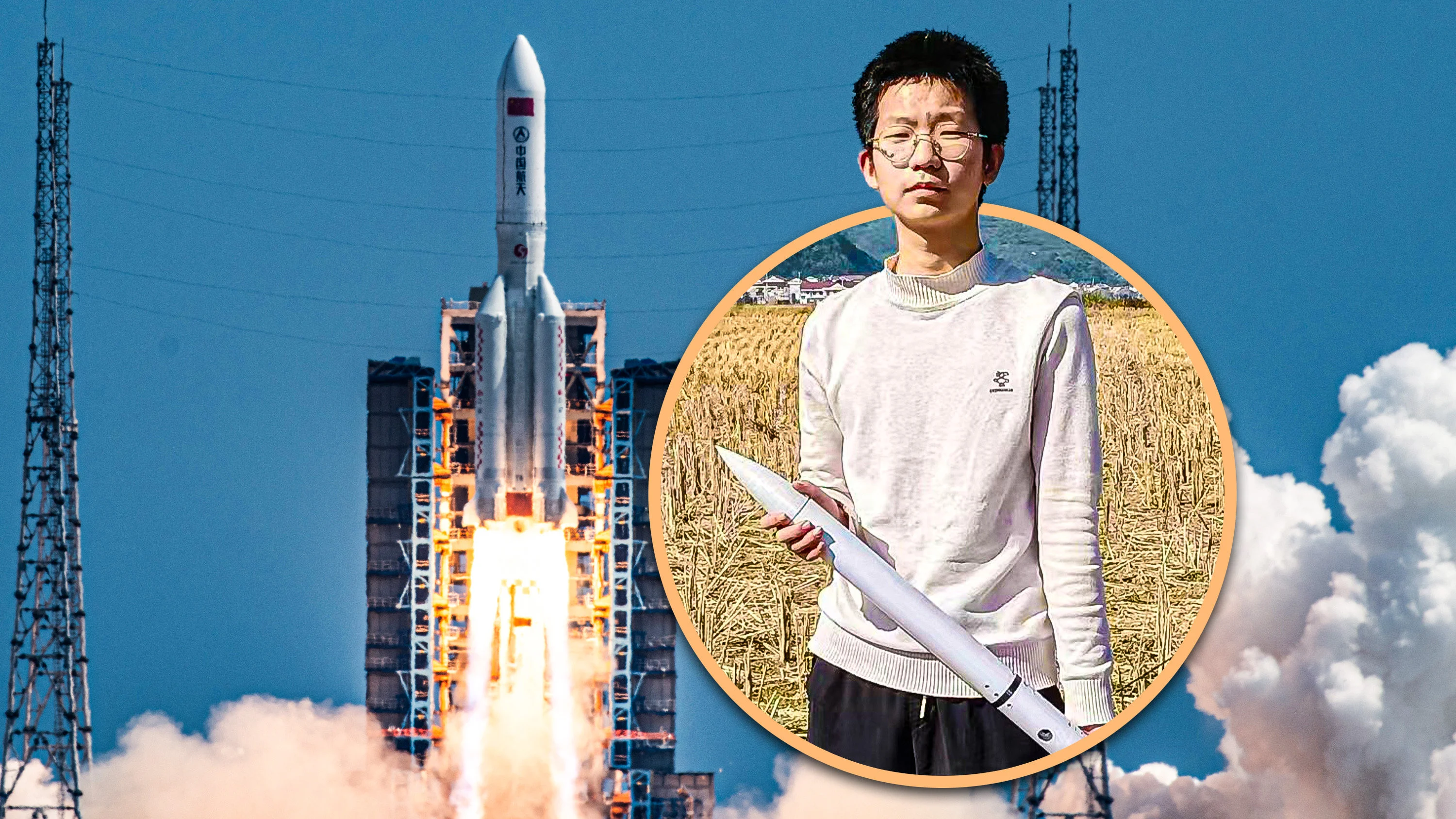By Fran Lu
Copyright scmp

A Chinese teenage boy, dedicated to DIY rockets, has inspired many by gaining admission to a university’s aerospace engineering programme this year.
Zhang Shijie, 18, hails from a village in central China’s Hunan province. His passion for rocket making ignited at 14, after watching a live broadcast of a rocket launch with his father.
Recently, he joyfully announced that he has been accepted into the aerospace engineering major at Shenyang Aerospace University, one of China’s premier aerospace institutions.
With no prior knowledge in rocket construction, Zhang turned to short video platforms to learn, absorbing information from DIY rocket videos shared by others. By November 2023, Douyin, the mainland Chinese version of TikTok, had 4.7 million scientific experiment videos, with water-powered rocket videos alone increasing eightfold that year.
Zhang’s secondary teacher, Long Yanjiao, noted that the internet was “immensely helpful” in nurturing Zhang’s passion, especially given the limited resources at his village school.
Using every tool at his disposal, Zhang improved his skills. He recycled a second-hand laptop from his sister to explore various science innovation forums.
Initially, he scraped nitrate from his family’s pigsty to create fuel, cooking it with sugar and water in their kitchen. However, realising the fuel was impure, he applied what he learned about filtration in school to derive a purer fuel from fertilisers.
Zhang experimented with affordable materials like PVC tubes and cement to construct rocket engines, although these attempts were unsuccessful. He also taught himself 3D modelling and design software, buying a second-hand 3D printer with money from his New Year red packet and loans from classmates to produce rocket parts.
On his birthday in June 2023, he invited his father and classmates to witness his first test launch. Despite the rain that led to a failure, he successfully launched the next day.
After over 100 attempts, Zhang has developed four types of engines, multiple single-stage rockets, and a two-stage rocket, which reached an altitude of 400 metres.
His school supported his endeavours, funding him with 3,500 yuan (US$500), assisting in recruiting fellow students, and providing an adapted office space originally designed for calligraphy.
Zhang described the office as his “spiritual home.” He also partially financed his passion by selling some of his creations to institutions, using the earnings to repay classmates’ loans.
Long, a teacher at the school for 30 years, remarked that Zhang is the first student she has seen with such a profound passion for science.
She emphasised: “Hobby is a person’s best teacher.”
Zhang’s family has been supportive of his aspirations. His father is a ride-sharing driver in Hunan’s capital, Changsha, while his mother works as a nanny in another city.
His father noted that Zhang is different from other children; instead of being drawn to video games, he has always been fascinated by disassembling toys to explore their mechanics.
Regarding his university admission, Zhang expressed his ultimate goal: to “design a real rocket.”
An online observer said: “Village children often face challenges in pursuing interests in science and technology, particularly due to limited school resources, and parental concerns about wasting money and not attending to proper duties.”
Another thoughtfully remarked: “The seed we grow when we are young can grow into a big tree, if it is well looked after.”



